Filter by
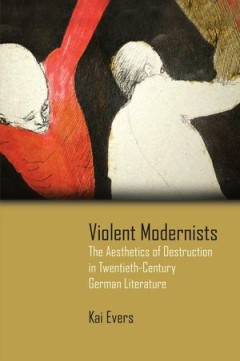
Violent Modernists: The Aesthetics of Destruction in Twentieth-Century German…
Kai Evers’s Violent Modernists: The Aesthetics of Destruction in Twentieth-Century German Literature develops a new understanding of German modernism that moves beyond the oversimplified dichotomy of an avant-garde prone to aggression on the one hand and a modernism opposed to violence on the other. Analyzing works by Robert Musil, Franz Kafka, Karl Kraus, Walter Benjamin, Elias Canetti, and …
- Edition
- -
- ISBN/ISSN
- 9780810129306
- Collation
- -
- Series Title
- -
- Call Number
- -
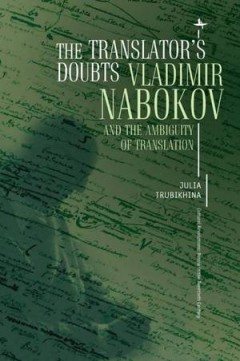
The Translator’s Doubts: Vladimir Nabokov and the Ambiguity of Translation
Using Vladimir Nabokov as its case study, this volume approaches translation as a crucial avenue into literary history and theory, philosophy and interpretation. It attempts to bring together issues in translation and the shift in Nabokov studies from its earlier emphasis on the metaliterary to the more recent metaphysical approach. Addressing specific texts (both literary and cinematic), the b…
- Edition
- -
- ISBN/ISSN
- 9781618117038
- Collation
- -
- Series Title
- -
- Call Number
- -
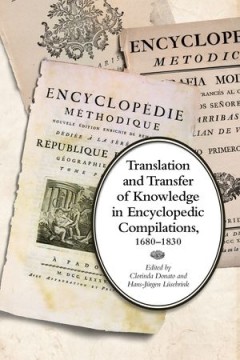
Translation and Transfer of Knowledge in Encyclopedic Compilations: 1680–1830
With a focus on the economic, social, and political impetus for producing monuments to knowledge, this volume recognizes the encyclopedic compilation as the quintessential tool of enlightenment knowledge transfer. From its modern origins in seventeenth-century France, encyclopedic compilations met the need for the dissemination of information in a more flexible format, one that eschewed the …
- Edition
- -
- ISBN/ISSN
- 9781487508906
- Collation
- -
- Series Title
- -
- Call Number
- -

Traces of War: Interpreting Ethics and Trauma in Twentieth-Century French Wri…
The legacy of the Second World War remains unsettled; no consensus has been achieved about its meaning and its lasting impact. This is pre-eminently the case in France, where the experience of defeat and occupation created the grounds for a deeply ambiguous mixture of resistance and collaboration, pride and humiliation, heroism and abjection, which writers and politicians have been trying to di…
- Edition
- -
- ISBN/ISSN
- 9781786940421
- Collation
- -
- Series Title
- -
- Call Number
- -
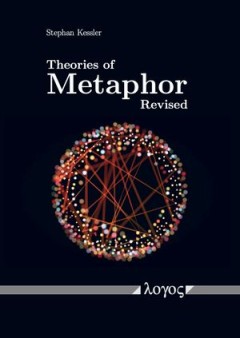
Theories of Metaphor Revised: Against a Cognitive Theory of Metaphor: An Apol…
Research that deals with metaphors and linguistic imagery has increased in the last thirty years. However, studies that question existing theories of metaphor from a comparative perspective are less common. The reason for the present theoretical sketch was the metaphorical model of conceptualism, alias the cognitive theory of metaphor: at least with this theory, `metaphor' itself has become a m…
- Edition
- -
- ISBN/ISSN
- 9783832547011
- Collation
- -
- Series Title
- -
- Call Number
- -
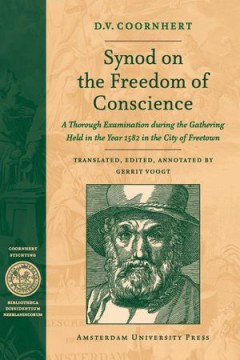
Synod on the Freedom of Conscience: A Thorough Examination during the Gatheri…
This is the first English translation of a pivotal work in the history of religious tolerance. In Synod on the Freedom of Conscience (1582) the Dutch humanist Dirck Volckertszoon Coornhert (1522-1590) provides one of the first book-length pleas for religious freedom published in the West. His central concern in his writings and exchanges with ministers of the Reformed Church was the safeguardin…
- Edition
- -
- ISBN/ISSN
- 9789089640826
- Collation
- -
- Series Title
- -
- Call Number
- -

Strindberg and Autobiography
This is a book about Strindberg and about the nature of autobiographical writing. In this sensitive and discerning study, Michael Robinson has turned aside from the more traditional biographical approach to Strindberg. Instead he sets out to explore the highly idiosyncratic way in which Strindberg projected himself in language, looking at the problems which this brought in its trail, and laying…
- Edition
- -
- ISBN/ISSN
- 9781909188013
- Collation
- -
- Series Title
- -
- Call Number
- -
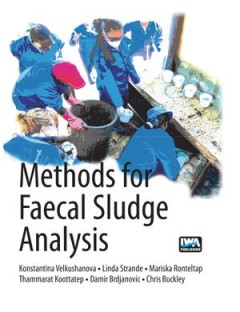
Spenserian Satire: A Tradition of Indirection
Scholars of Edmund Spenser have focused much more on his accomplishments in epic and pastoral than his work in satire. Scholars of early modern English satire almost never discuss Spenser. However, these critical gaps stem from later developments in the canon rather than any insignificance in Spenser's accomplishments and influence on satiric poetry. This book argues that the indirect form of s…
- Edition
- -
- ISBN/ISSN
- 9780719088087
- Collation
- -
- Series Title
- -
- Call Number
- -
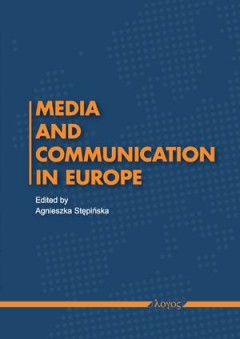
Spatial Boundaries, Abounding Spaces: Colonial Borders in French and Francoph…
Colonial expansion and spatial grammar in French-language works from different historical and national contexts Colonialism advanced its project of territorial expansion by changing the very meaning of borders and space. The colonial project scripted a unipolar spatial discourse that saw the colonies as an extension of European borders. In his monograph, Mohit Chandna engages with narrations…
- Edition
- -
- ISBN/ISSN
- 9789461663832
- Collation
- -
- Series Title
- -
- Call Number
- -

Scandinavian Elements of Finnegans Wake
In Scandinavian Elements of Finnegan’s Wake, Dounia Bunis Christiani addresses herself to an enormous task: examining the significance of Scandinavian history, literature, and languages for the composition of James Joyce’s masterwork. Whereas critical studies of Joyce tend to fall into two categories – those exploring the philosophical grounding of his works and those providing close text…
- Edition
- -
- ISBN/ISSN
- 9780810138254
- Collation
- -
- Series Title
- -
- Call Number
- -
 Computer Science, Information & General Works
Computer Science, Information & General Works  Philosophy & Psychology
Philosophy & Psychology  Religion
Religion  Social Sciences
Social Sciences  Language
Language  Pure Science
Pure Science  Applied Sciences
Applied Sciences  Art & Recreation
Art & Recreation  Literature
Literature  History & Geography
History & Geography